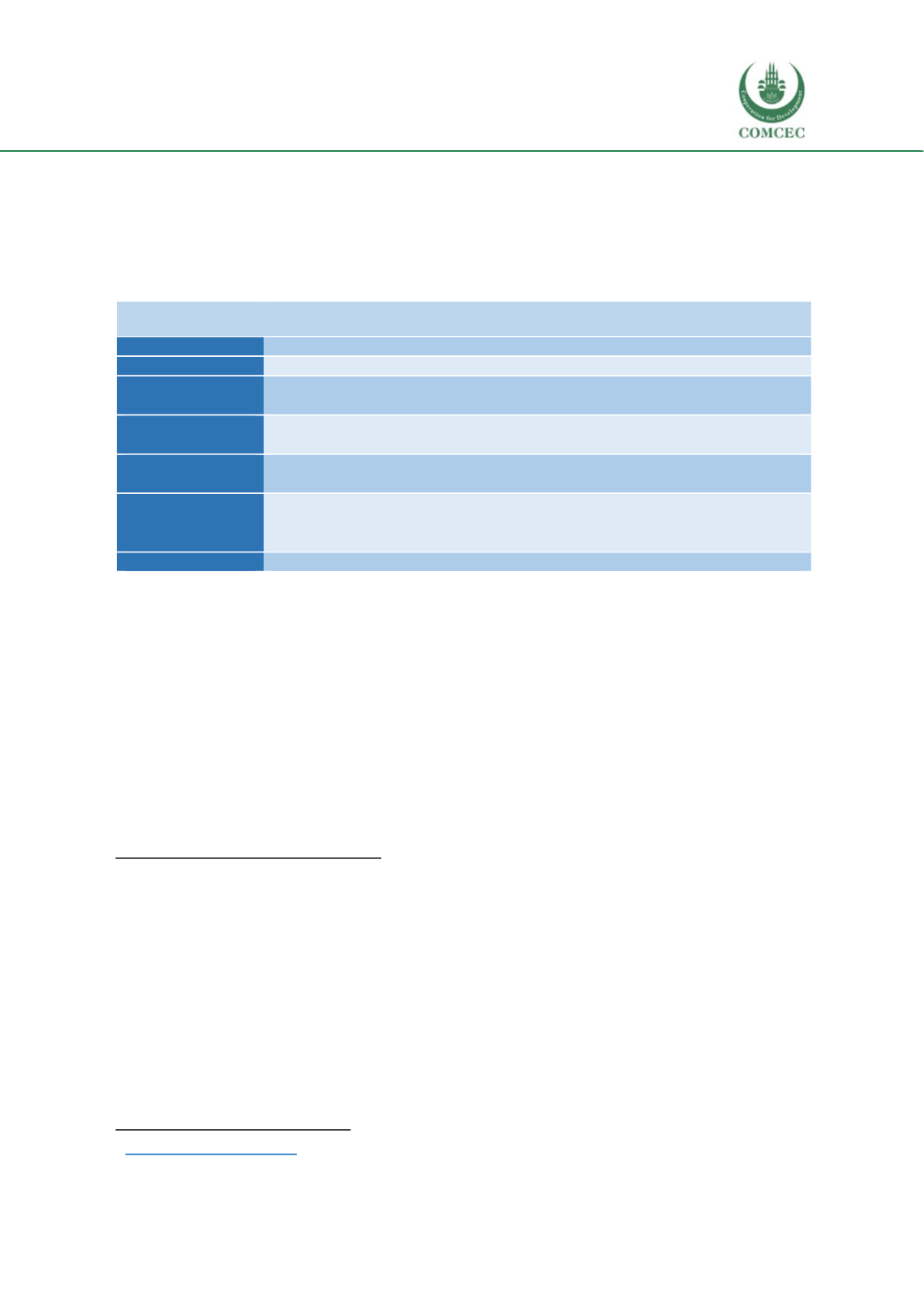

Skills Development: Vocational Education
in the Islamic Countries
79
Additionally, this current research (BIDS, 2017) also identified occupational areas of specific
sub-sectors of few industries in Bangladesh. Table 3.16 shows: the sub-sectors of six industries
which are emerging areas in Bangladesh: IT, light engineering, ship building, lather good and
footwear, construction, RMG: Knit &Woven. The BIDS (2017) suggests that the following specific
occupations areas under six sectors could be the emerging training needs area:
Table 3.16: Occupations where SEIP take up training:
Sectors
Occupations
IT
Mid level professionals, specified skill workers
Light engineering
CAD-CAM, Welding, CNC Cutting
Ship building
Welding and Fabrication, Electrical and Navigation, Machine Tools
Operation, CAD and CAM, Piping, Painting
Leather goods and
footwear
Sewing, Cutting, Setting and Assembling, Supervisor, Quality controller,
Lasting
Construction
Rod Binding and fabrication, Masonry, Plumbing, Electrical, Tiles and
Marble Work, Aluminium Fabrication.
RMG: Knit
Cutting Swing & Finishing department ( Skilled and semi-skilled), Planning,
Industrial Engineering & Production, Quality, Product Design and
Development, Admin, HR, Compliance & Fire safety (Mid level Managers)
RMG: Woven
Basic operator, Technician, Mid level, New entrants in Mid level
(ii) Skills&Training EnhancementProject (STEP)
3
The Government of Bangladesh has undertaken a series of reform programs in Technical and
Vocational Education and Training (TVET) sector to face the challenges of 21
st
century. As part
of the reform, theMinistry of education has been implementing six-year long “Skills and Training
Enhancement Project (STEP)”. The aim and objective of the project is to improve the quality,
relevance and efficiency of TVET in view of increasing employability of technical graduates at
home and abroad with special focus to reduce poverty and improve the quality of life of the
general mass, in particular. Due to the successful completion of the project for the first six years
(July 2010 - June 2016) the project has been extended for the next three years (July 2016 - June,
2019). The Bangladesh government, the World Bank and Canada are jointly funding this
successful project.
The main objectives of the project:
The main purpose of the STEP project is to improve poverty and unemployment through the
development and expansion of TVET to make education accessible to the socio or economically
disadvantage students and to create jobs to increase their employment opportunities.
1.
Enhance the quality and relevance of TVET to accelerate the government poverty
eradication target.
2.
Strengthen the overall TVET system through operational support to ISC and NSDC and
financial support to SSC (vocational) Schools.
3.
Capacity build-up of key technical institutions i.e., DTE, BTEB and BMET.
4.
Project management and structure development, enhance communication strategy and
undertakemonitoring and assessment program.
3 http://step-dte.portal.gov.bd/















